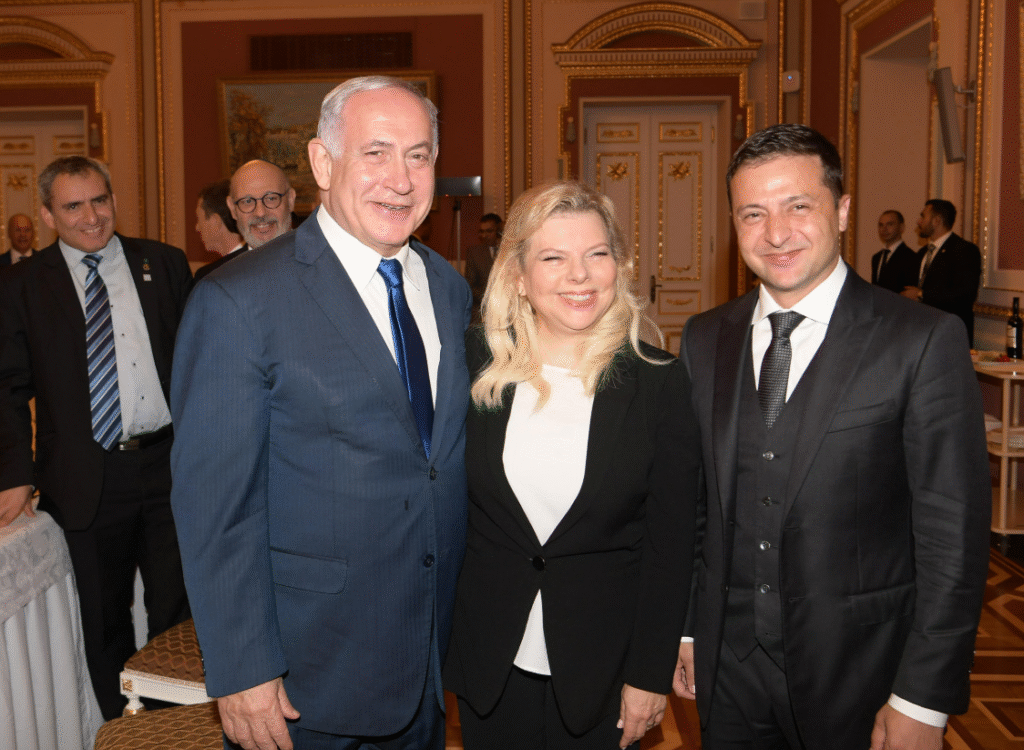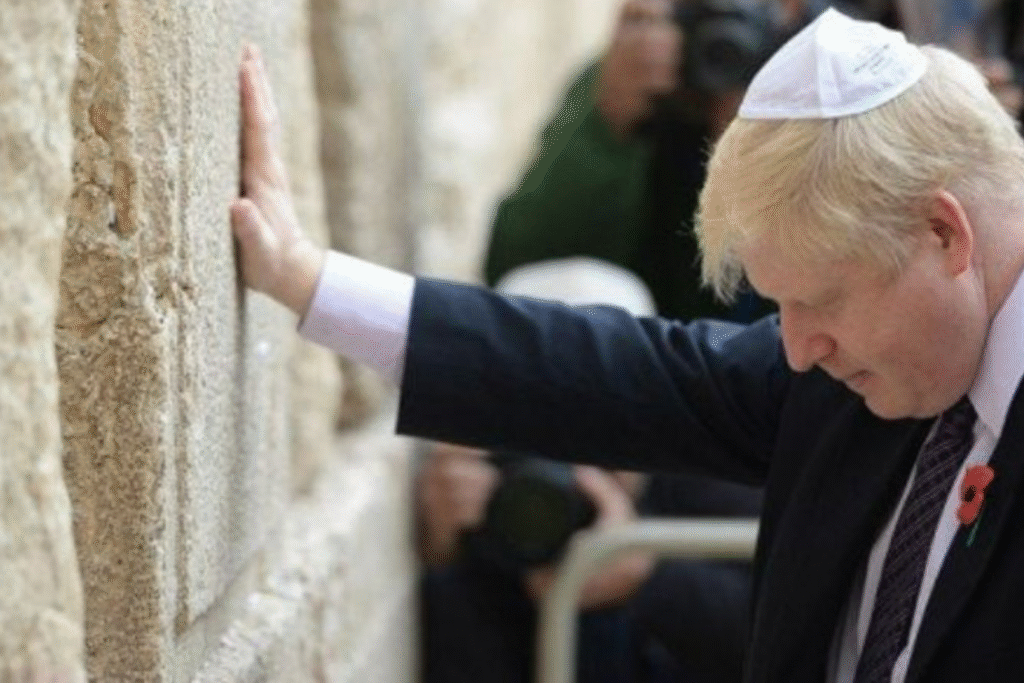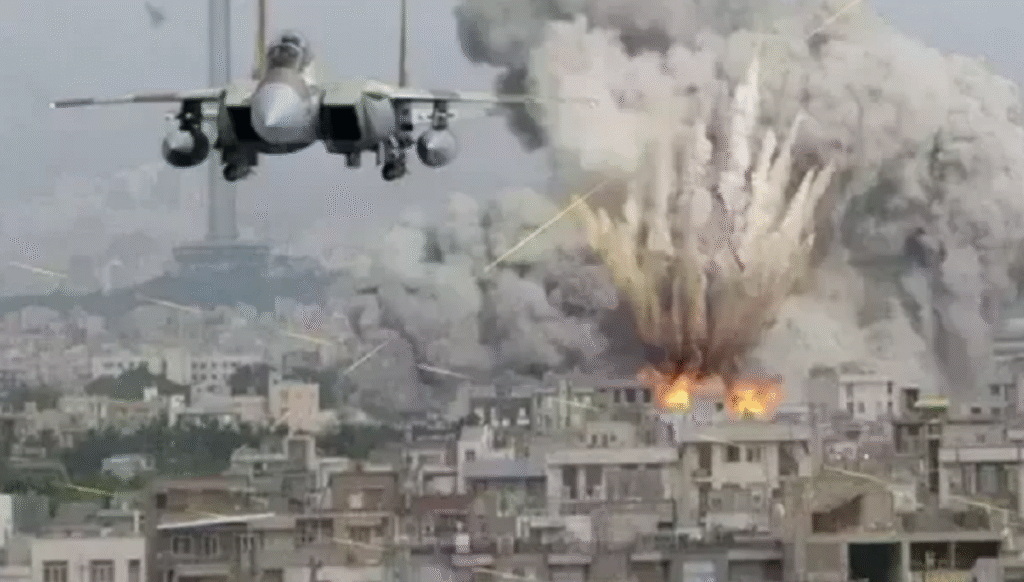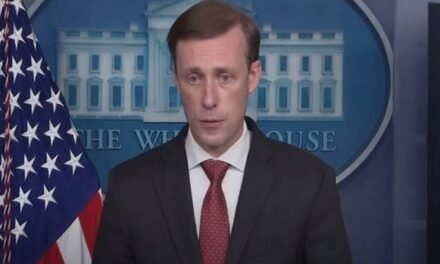As the world watches Israel’s escalating military actions against Iran, a deeper, more disturbing hypothesis has emerged: was the Ukraine conflict itself engineered—or at least encouraged—by Israel and its allies to weaken Russia’s growing influence in the Middle East?
This isn’t just another conspiracy theory born out of frustration with global double standards. As we peel back the layers of recent geopolitical events, an unmistakable pattern begins to emerge. Consider the timing, the sequence, and most importantly—the beneficiaries. The United States, the United Kingdom, and other NATO allies have long used proxy conflicts to weaken geopolitical rivals, but Israel’s fingerprints—subtle yet deliberate—are becoming harder to ignore.
For decades, Israel has viewed Iran, Syria, and Hezbollah as existential threats to its regional dominance. And while the world’s attention fixated on Ukraine, Israel systematically accelerated its military and political campaigns in Gaza, Lebanon, and Syria—often with the tacit or open approval of Western powers.
While this theory challenges mainstream narratives, several undeniable facts suggest that Israel’s long-term strategic goals in the region align disturbingly well with the sequence of global events since 2022. Let’s unpack the timeline and motives.
Russia in Syria: A Strategic Challenge to Israeli Ambitions
Since 2015, Russia’s direct military intervention in Syria has transformed the balance of power in the Middle East, fundamentally reshaping the dynamics of Israel’s long-standing regional strategy. What began as Moscow’s effort to prop up the Assad government quickly evolved into a permanent military footprint, including airbases, naval facilities, and some of the world’s most advanced air defence systems. For Israel, Russia’s presence in Syria has become more than a complication—it is a significant obstacle to Tel Aviv’s decades-long policy of regional dominance through the weakening of its neighbours.
In September 2015, Russia formally intervened in the Syrian Civil War, providing critical air support to the Syrian Arab Army. Soon after, it established Khmeimim Air Base in Latakia and secured permanent rights to operate from the Tartus naval facility, which has since been expanded. Along with these physical assets, Russia deployed advanced S-300 and S-400 air defence systems, effectively establishing a formidable anti-access/area denial (A2/AD) bubble over much of western Syria (BBC, 2015).
By 2017, Russian Defence Minister Sergei Shoigu publicly confirmed the permanent status of the Tartus facility, signalling Moscow’s long-term ambitions in the eastern Mediterranean (TASS, 2017).
Israel has conducted hundreds of airstrikes in Syria targeting Iranian assets and Hezbollah convoys. However, Russia’s military presence has both complicated and constrained these operations. Israeli pilots must now coordinate with their Russian counterparts via a deconfliction hotline to avoid accidental clashes (Reuters, 2019).
Beyond military coordination, Russia’s diplomatic messaging has increasingly leaned against Israel’s military actions. In 2024, Russian Foreign Ministry spokeswoman Maria Zakharova labelled Israeli airstrikes “irresponsible,” warning that they risked triggering a broader regional conflict (TASS, 2024). Foreign Minister Sergey Lavrov has likewise condemned Israeli strikes, consistently citing violations of Syrian sovereignty (Reuter, 2022).
In 2021, a Russian official speaking to Israel Hayom acknowledged that Moscow had begun actively limiting Israeli strikes within Syrian government-controlled territory (Israel Hayom, 2021).
For Israel, Russian involvement in Syria undermines its strategic objectives on two fronts. First, Moscow’s support for Assad stabilizes a government that Israel has long sought to keep weak and isolated. Second, by serving as a patron to both the Syrian state and, indirectly, to Hezbollah, Russia indirectly strengthens Israel’s primary regional adversaries.
Former Israeli Defence Minister Avigdor Liberman articulated this concern in 2017 when he warned that Assad’s continued rule guaranteed Iran and Hezbollah’s entrenchment in Syria (Times of Israel, 2017). This directly contradicted Israel’s doctrine of “campaigns between the wars,” a military strategy designed to prevent hostile actors from consolidating positions near Israel’s borders.
Despite public tensions, Israel has also engaged in pragmatic dealings with Moscow. In 2017, Ynet reported that Russia was quietly advising Assad to avoid retaliating against Israeli strikes and had assured Israel that it would “suppress” any threatening Iranian activity near the Golan Heights (Ynet news, 2017). At the same time, Israeli officials have lobbied U.S. and Russian counterparts to ensure that Syria remains militarily weak and politically fragmented, a status quo that serves Israel’s long-term security interests (Reuters, 2018).
Russia’s entrenched military presence in Syria represents a new and durable challenge to Israeli regional policy. While Israel remains militarily superior to any of its individual neighbours, it now faces the reality of conducting operations under the watchful eye of Moscow’s advanced air defence network and increasingly assertive diplomatic posture.
More than a nuisance, Russia has become a strategic thorn in Israel’s side, complicating its efforts to isolate Iran, contain Hezbollah, and maintain its traditional dominance over the fractured Middle East landscape.
Diverting the Bear: The Ukraine Gambit and Zionist Influence
As the world watched Russia launch its Special Military Operation (SMO) in Ukraine in February 2022, few in mainstream Western media asked who truly benefited from dragging Moscow into a grinding European war. Beyond the immediate clash of Russian and Ukrainian interests, a deeper web of global influence may have been at play—one in which powerful Zionist-aligned actors had both motive and means to push events toward conflict.
Since the U.S.-backed Maidan coup in 2014, Ukraine has become the centrepiece of NATO’s eastward expansion and the site of escalating confrontation between Russia and the West. For Moscow, the red lines were clear: Ukraine must never become a NATO outpost, and the Russian-speaking populations of Donbass deserved protection from persecution by the increasingly nationalist—and in some corners, openly Neo-Nazi—forces in Kiev.

Enter Volodymyr Zelensky, a Jewish comedian-turned-president, who swept to power in 2019 promising peace in Donbass and reconciliation with the breakaway republics. Instead, his administration escalated the conflict, refusing to implement the Minsk Agreements and openly incorporating Azov and other radical nationalist battalions into Ukraine’s formal military structures.
While Zelensky’s Jewish heritage is often cited as evidence of Ukraine’s supposed liberalism, it also provided useful political cover.
Zelensky and Netanyahu 2019
Western media eagerly promoted a sanitized version of Ukrainian politics, conveniently ignoring the reality that Ukrainian nationalist militias were attacking Russian-speaking civilians in the Donbass long before the SMO.
The Zionist Connection: Influence in Washington and Kiev
Here’s where the picture sharpens. While no direct evidence exists proving Israeli or Zionist masterminding of the Ukraine crisis, there is significant circumstantial evidence of Zionist-aligned individuals and networks heavily shaping Ukraine policy in the United States:
- Victoria Nuland, U.S. Undersecretary of State for Political Affairs and a long-time architect of U.S. Ukraine policy, is married to Robert Kagan, a leading neoconservative figure. Both are strongly aligned with pro-Israel think tanks and lobbies in Washington. Nuland’s infamous leaked phone call in 2014 revealed how deeply embedded U.S. influence was in the formation of Ukraine’s post-Maidan government.
- Antony Blinken, U.S. Secretary of State, (2021-2025) also of Jewish descent and openly supportive of Israel, was one of the strongest voices advocating for U.S. military assistance to Ukraine even before 2022.
- George Soros’s Open Society Foundations—a driving force behind civil society movements in Ukraine and foundered by USAID to the tune of 100s of millions of dollars—has extensive historical involvement in shaping Ukraine’s post-Soviet orientation toward the West. Soros himself has deep ties to pro-Zionist institutions.
- In Ukraine itself, Ihor Kolomoisky, the oligarch who helped bankroll Zelensky’s rise to power, has Israeli citizenship and has been linked to funding the Neo Nazi Azov Battalion operations during the early phases of the Donbass conflict.
Taken together, this constellation of Zionist-connected influence in both Washington and Kiev raises serious questions: were these networks merely operating in the shared interest of weakening Russia, or were deeper strategic objectives at play?
The circumstantial case strengthens when one examines Israel’s regional needs. As documented earlier in this larger analysis, Israel’s frustration with Russia’s military role in Syria was both real and public. Russian air defences restricted Israel’s freedom to strike Iranian and Hezbollah-linked positions throughout Syria.
Coincidentally—or not—as Russia shifted forces and attention toward Ukraine, Israeli strikes on Syria dramatically escalated. By 2023, multiple Israeli air raids hit key Iranian targets in Damascus, Aleppo, and Homs with little fear of Russian retaliation.
Who benefits from drawing Russia into a European war of attrition? Washington benefits by weakening a major Eurasian competitor. NATO benefits by expanding its military influence. And Israel benefits by clearing the skies over Syria. The overlap of interests is striking.
To be clear: this is not a claim of a singular Zionist conspiracy controlling global events. Rather, it’s a recognition of overlapping influence networks, shared interests, and an undeniable geopolitical payoff for Israel and its most powerful allies. Ukraine was the lever. Russia, the target. Syria, the silent prize.
As the war grinds on, and as Israeli strikes on Syria continue largely unopposed, it’s increasingly difficult to ignore the possibility that Ukraine served not only as a geopolitical battlefield between Moscow and Washington—but also as a strategic diversion orchestrated, at least in part, to serve the regional goals of the Israeli state and its allies in the West.
Boris Johnson and the Broken Peace

Negotiations between Russia and Ukraine in Istanbul during March 2022 represented one of the most promising—yet least discussed—opportunities to end the war early. According to accounts confirmed by multiple sources, including Ukrainian negotiator Oleksiy Arestovych and reports from Foreign Affairs and Ukrainska Pravda, a framework was emerging Ukraine would declare neutrality, drop its NATO ambitions, and Russia would withdraw to pre-February lines.
Boris Johnson at the Wailing wall
But within weeks, the peace effort collapsed. Why?
Boris Johnson’s Role
In April 2022, then-UK Prime Minister Boris Johnson made an unannounced trip to Kyiv. According to Ukrainska Pravda quoting Ukrainian officials, Johnson brought a blunt message:
“Even if Ukraine is ready to sign some agreements on guarantees with Putin, they are not. The collective West, which back then gave Kyiv the impression that Putin should be pressured, not negotiated with.”
Johnson’s intervention was pivotal. Instead of pursuing a negotiated end, the war escalated, transforming into a grinding war of attrition with catastrophic consequences for Ukraine and Europe.
Engagements with Israel and Pro-Israel Lobbying
Johnson’s stance on Ukraine did not emerge in isolation. His political career has long been intertwined with pro-Israel networks and interests. Notably, Johnson has had multiple engagements with Israel and pro-Israel groups:
- In November 2004, as an MP, Johnson visited Israel on a trip funded by the Israeli government and Conservative Friends of Israel (CFI), a major pro-Israel lobby group in the UK.
- As Mayor of London in 2015, Johnson led a trade mission to Israel, vocally condemning the Boycott, Divestment, and Sanctions (BDS) movement, describing it as “completely crazy” and dismissing it as led by “ridiculous, corduroy-wearing lefty academics.”
- Reports reveal that about a third of the UK Cabinet, including Johnson, have received funding or support from Israel or pro-Israel lobby groups for trips or political activities.
Most significantly, in January 2022, just two months before his visit to Kyiv, Johnson held a phone call with Israeli Prime Minister Naftali Bennett. The conversation reportedly covered several critical topics, including COVID-19 vaccination cooperation, the proposed UK-Israel Free Trade Agreement, a joint innovation summit, and crucially, the Iran nuclear deal and Israel’s deep concerns over Tehran’s expanding nuclear ambitions and regional influence..
Given Israel’s determination to prevent Iran from acquiring nuclear weapons—often through aggressive covert operations and diplomatic pressure—Johnson’s alignment with Israel on Iran reflects the deep security and strategic concerns that influence his broader foreign policy outlook.
The Middle East Connection
The true reason why powerful Zionist forces in the West sought to prolong the Ukraine conflict lies not in the defence of “democracy” or “sovereignty,” but in the ongoing imperial struggle for control over the Middle East.
Since 2015, Russia has been one of the few major powers standing in the way of Zionist ambitions for total dominance in the region. By supporting the legitimate government of Syria under Bashar al-Assad, Moscow helped stabilize a sovereign country that had been deliberately plunged into chaos by Western-backed regime change operations. Russia’s deployment of advanced air defences like the S-400 system severely restricted Israel’s ability to bomb Syria at will, especially Iranian positions that form a critical line of defence against Zionist aggression.
Russia’s partnership with Iran and Hezbollah in Syria represents a major obstacle to Israel’s long-term goals of fragmenting the Arab world, weakening any state that resists Israeli expansion, and neutralizing Iranian influence. Iran’s growing role in the Levant threatens Israel’s dream of regional supremacy. More than that, Hezbollah’s success in resisting Israeli incursions in Lebanon exposed the myth of Israeli military invincibility, something Zionist strategists have never forgotten nor forgiven.
It is in this context that the war in Ukraine must be seen. By dragging Russia into a prolonged, draining conflict on its western borders, the Anglo-American-Zionist alliance could weaken Moscow’s ability to maintain its decisive role in Middle Eastern affairs. A Russia preoccupied with Ukraine would have fewer resources to defend Syria’s sovereignty, less bandwidth to coordinate with Iran, and diminished capacity to shield the region from the daily violations of international law carried out by the Israeli military.
The Zionist lobby’s interest in prolonging the Ukraine conflict has nothing to do with the Ukrainian people, and everything to do with clearing the path for greater Israeli aggression in the Middle East. The more Russia is tied down, the freer Israel becomes to bomb, assassinate, and destabilize without fear of serious reprisal or diplomatic resistance.
This is why figures like Boris Johnson, known for their loyalty to Zionist interests, played such a key role in sabotaging the Istanbul peace talks in early 2022. Ending the war early would have allowed Russia to resume its rightful position in defending sovereign nations like Syria from Zionist attacks. That was something Israel’s backers could not allow.
In short, the war in Ukraine is not just a NATO-Russia conflict—it is a Zionist war by proxy against the forces resisting Israeli domination of the Middle East. And Russia’s stand in Syria is part of the same fight.
Strategic Sacrifice: Ukraine as a Pawn
Viewed through the lens of geopolitical realism, Boris Johnson’s sabotage of the Istanbul peace talks was not mere diplomatic folly—it was a calculated act of treachery designed to advance the imperial ambitions of the Anglo-American-Zionist alliance. Ukraine was never the true concern. It was a pawn, cynically sacrificed on the altar of Western hegemony and Zionist expansionism.
For the Zionist elite, prolonging the war served multiple purposes. Weakening Russia was not an end in itself, but a means of breaking Moscow’s ability to defend sovereign nations like Syria and restrain Israeli aggression across the Middle East. The longer Russian forces were tied down in Ukraine, the fewer resources and attention they could devote to thwarting Israeli bombing raids, protecting Iranian allies, and frustrating the Zionist dream of regional supremacy.
The human cost to Ukrainians was treated with utter contempt by these Western architects of war. Tens of thousands of Ukrainians killed, millions displaced, cities reduced to rubble—and all for the sake of advancing a strategic chessboard thousands of kilometres away in Damascus, Tehran, and Beirut.
Meanwhile, as Ukrainian blood soaked their native soil, Western arms manufacturers saw their profits soar. Energy conglomerates raked in unprecedented windfalls as European dependence shifted from affordable Russian gas to overpriced American liquefied natural gas (LNG). At the same time, the Zionist state capitalized on Russia’s distraction to escalate illegal airstrikes on Syrian soil with near impunity, pursuing its long-held policy of regional destabilization and Iranian containment.
The Istanbul peace talks represented a real opportunity to end the war before it escalated into full catastrophe. Yet that hope was coldly extinguished—not by Ukrainians acting in their national interest, but by foreign agents like Boris Johnson, doing the bidding of those who profit from permanent war and global disorder.
This may go down as one of the great betrayals of the 21st century—where peace was deliberately sacrificed not for “Ukrainian sovereignty,” but to serve the overlapping interests of Western imperialists and Zionist warmongers. The Ukrainian people were used, their tragedy exploited for someone else’s empire.
Far from being the Churchillian hero of Western myth, Boris Johnson may instead be remembered as the Zionist stooge who helped torch the last real chance for peace in Europe, condemning millions to suffering—all for the geopolitical gain of the few.
The Gaza Catalyst: Pretext for Total War
The next phase of this engineered global confrontation came with October 7, 2023—an event that would be cynically seized upon as the pretext for unleashing total war across the Middle East. On that day, Hamas—an organization with a long, well-documented history of being manipulated by Israeli intelligence to serve as a disruptive force against the more moderate and diplomatically competent PLO—launched its brutal and unexpected attack on Israeli territory.
Whether that attack was the result of deliberate Israeli provocation, direct infiltration, or simple negligence, its utility to Tel Aviv’s war planners was undeniable. Within days, Israel unleashed its most savage and indiscriminate bombing campaign in Gaza’s history. Hospitals, refugee camps, and civilian infrastructure were obliterated while Western leaders parroted hollow slogans of “Israel’s right to defend itself,” offering no such recognition to the defenceless Palestinian civilians under relentless attack.
But Gaza was only the first domino.
The Zionist leadership used the October 7 attacks as cover for a much wider strategy—one carefully crafted over years, if not decades. The destruction of Gaza was not just vengeance—it was strategic. Under this smokescreen of “self-defence,” Israel expanded operations in Lebanon against Hezbollah, all while intensifying its illegal and destabilizing strikes inside sovereign Syrian territory, as repeatedly condemned by Russia and Syrian officials.
Syria Falls, Iran in Sight
As Russia remained locked in a costly and grinding struggle in Ukraine—a war deliberately prolonged by Western leaders like Boris Johnson acting as agents of Zionist foreign policy—Israel capitalized on Moscow’s diverted attention.

By mid-2025, Syria—a country that had heroically resisted over a decade of Western and Israeli-led regime-change wars—finally fractured under the combined weight of external aggression, Israeli airstrikes, Turkish incursions, and economic strangulation. The Assad government, once fortified by Moscow’s steadfast support, collapsed.
Israeli Jet bombs Syria
And in a display of imperialist cynicism, the West quietly installed a “new Syrian leadership,” a once-sanctioned figure who somehow transformed overnight into an “acceptable” partner for Washington and Tel Aviv. Israel’s military seized parts of southern Syria, expanding its illegal occupation of the Golan Heights further, under the guise of securing its northern border.
It was never about “security”—it was about hegemony, resource control, and the Zionist dream of “Greater Israel,” stretching from the Nile to the Euphrates, long whispered in Israeli strategic circles.
Iran Under Siege
With Gaza decimated, Hezbollah bloodied, and Syria shattered, only Iran remained standing in the path of Zionist domination over the region. Predictably, by June 2025, Israel launched direct attacks on Iranian soil, including strikes on critical infrastructure and nuclear research facilities, acts of open war in clear violation of international law.
And where were the self-proclaimed defenders of “rules-based international order”? The same European and American leaders who sanctimoniously condemned Russia for defending its security interests in Ukraine now stood silent or openly complicit in Israel’s illegal acts of aggression against Iran.
The geopolitical pattern had become undeniable to any honest observer:
- Weaken Russia by dragging it into an artificially prolonged war in Ukraine, orchestrated by Western leaders like Boris Johnson under heavy influence from Zionist networks.
- Dismantle Iranian influence by systematically crushing its regional allies: Hamas, Hezbollah, and Syria.
- Fragment Syria permanently to create pliable client states while expanding Israel’s illegal territorial gains.
- Isolate and neutralize Iran, paving the way for unchallenged Israeli hegemony before Iran completes its nuclear program or strengthens further regional alliances.
Conclusion: Zionism’s Long Game
This is not conspiracy—it is strategy, pursued in plain sight by those who believe themselves untouchable behind the shield of Western military might, financial power, and media control.
Russia’s intervention in Ukraine was never simply about NATO or Donbass—it was part of a global struggle against a Zionist-dominated geopolitical order that uses war, destruction, and exploitation to cement its dominance, no matter the cost in human lives, national sovereignties, or global stability.
The world stands at the crossroads: continued Zionist aggression leading to global conflagration—or a multipolar order, defended by sovereign nations like Russia, committed to resisting this imperial madness.
Is this all coincidence, or is it a coordinated geopolitical project, carefully executed by Zionist influence in Western capitals?
While some parts of this narrative remain speculative, the sequence of events—and the beneficiaries—cannot be denied. Israel, backed by the Zionist lobbies controlling U.S. and UK foreign policy, has expanded its influence dramatically in the past three years, all while hiding behind the smoke of “defence” and “fighting terrorism.”
As Gaza burns, as Syria fractures, and as Iran stands isolated, the world must confront not just individual wars—but the overarching imperial strategy driving them.
If the global community does not wake up to this long-term design, the question is not if the Middle East will burn—but how soon.





